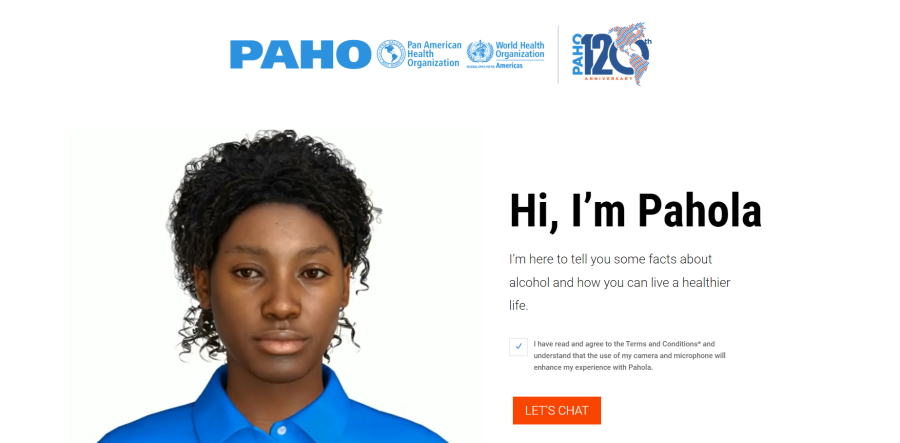WHO/PAHO launch free digital health assistant to cut alcohol-related diseases

A digital health assistant that can help people at risk of becoming dependent on alcohol has been launched in Belize, its first country, by the World Health Organization (WHO) and Pan-American Health Organisation (PAHO).
The artificial intelligence-powered assistant – called Pahola and available as a free online chat-based site – is designed to provide information and guidance to help people reduce their alcohol consumption, helping to prevent more than 200 health conditions linked to excessive alcohol intake.
Pahola is the latest project by the WHO in the area of digital health, making its debut shortly after it launched another digital assistant called Florence that provides general advice on COVID-19, mental health, healthy eating, and quitting tobacco and e-cigarettes.
It is designed to respond to questions like ‘how do I know if I drink too much?’, according to PAHO, which says it has been developed “to be empathic and supportive at times when an actual health professional is not available”.
Belize has been chosen as the launch market for Pahola as it has a well-recognised problem with alcoholism and a high rate of regular alcohol consumption, as well as binge drinking.
A PAHO survey (PDF) published a few years ago showed that, among young men aged 18 to 29, more than 11% reported fighting as a result of drinking, and nearly 6% injuring themselves as a result, while more than 6% were category 3 drinkers – meaning they consumed in excess of 60g of alcohol per day, which raises their risk of cirrhosis and other alcohol-related complications.
It’s an issue that is prevalent across the Americas, which has the second highest percentage for alcohol consumption worldwide with 54% of the total population current drinkers.
Pahola is intended to complement outreach initiatives by the National Drug Abuse Control Council (NDACC) and the Ministry of Health and Wellness in Belize to try to reduce alcohol consumption.
"The goal of Pahola is not only to reduce the rate of alcohol use, but also to help people better recognise the harmful effects caused by alcohol and the burden it places on their overall well-being,” said PAHO in a statement.
“Misuse of alcohol can lead to negative health and social effects, such as drunk driving, domestic violence, several forms of cancer, chronic liver disease such as cirrhosis, and heart disease,” it continued. “With Pahola, people can learn and understand how they can live a better life by drinking less alcohol.”


